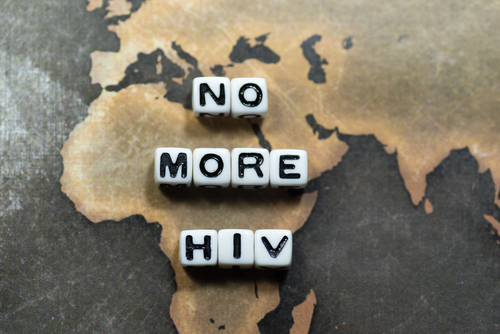HIV-preventing vaginal ring found safe for girls: Study
IANS Jul 26, 2017
A vaginal ring that contains an experimental antiretroviral (ARV) drug, previously found to provide protection against HIV infection in women, has been found safe and acceptable in teenage girls, researchers claim.

Dapivirine, also known as TMC-120, belongs to a class of ARVs called non-nucleoside reverse transcriptase inhibitors that bind to and disable HIV's reverse transcriptase enzyme -- a key protein needed for HIV replication.A vaginal ring that contains an experimental antiretroviral (ARV) drug, previously found to provide protection against HIV infection in women, has been found safe and acceptable in teenage girls, researchers claim.Dapivirine, also known as TMC-120, belongs to a class of ARVs called non-nucleoside reverse transcriptase inhibitors that bind to and disable HIV's reverse transcriptase enzyme -- a key protein needed for HIV replication.The dapivirine ring, made of a flexible material, has already been shown to be both safe and to help protect against HIV among women aged 18-45 years in earlier clinical trials.
However, the new study found the ring safe to use by girls aged under 18."If the ring is approved for women older than age 18, it's imperative that we have the data in hand to show that the ring is safe to use in younger women as well," said lead investigator Sharon Hillier, Professor at the University of Pittsburgh in Pennsylvania, US. "HIV doesn't distinguish between a 16-year-old and an 18-year-old. Access to safe and effective HIV prevention shouldn't either. Young women of all ages deserve to be protected," Hillier added while presenting the findings at the 9th IAS Conference on HIV Science 2017 in Paris.
For the new study, known as MTN-023/IPM 030, the team enrolled 96 girls aged 15-17. Participants were randomly assigned to use either the dapivirine ring (73) or a placebo ring (23) for a month at a time for a total of six months.The study found no differences in safety outcomes between the dapivirine ring and the placebo ring, the researchers noted.Adherence to ring use was also high. By self-report, 42 per cent of participants said they had never removed the ring except to replace it monthly.While 95 per cent said that the ring was easy to use, 74 per cent indicated they were not aware of the ring during daily activities.
The study provides information about safety and tolerability that regulatory authorities would need to expand approval of the ring to also include girls under the age of 18, the researchers noted.. However, the new study found the ring safe to use by girls aged under 18."If the ring is approved for women older than age 18, it's imperative that we have the data in hand to show that the ring is safe to use in younger women as well," said lead investigator Sharon Hillier, Professor at the University of Pittsburgh in Pennsylvania, US."HIV doesn't distinguish between a 16-year-old and an 18-year-old. Access to safe and effective HIV prevention shouldn't either. Young women of all ages deserve to be protected," Hillier added while presenting the findings at the 9th IAS Conference on HIV Science 2017 in Paris.For the new study, known as MTN-023/IPM 030, the team enrolled 96 girls aged 15-17. Participants were randomly assigned to use either the dapivirine ring (73) or a placebo ring (23) for a month at a time for a total of six months.
The study found no differences in safety outcomes between the dapivirine ring and the placebo ring, the researchers noted.Adherence to ring use was also high. By self-report, 42 per cent of participants said they had never removed the ring except to replace it monthly. While 95 per cent said that the ring was easy to use, 74 per cent indicated they were not aware of the ring during daily activities.The study provides information about safety and tolerability that regulatory authorities would need to expand approval of the ring to also include girls under the age of 18, the researchers noted.
-
Exclusive Write-ups & Webinars by KOLs
-
Daily Quiz by specialty
-
Paid Market Research Surveys
-
Case discussions, News & Journals' summaries